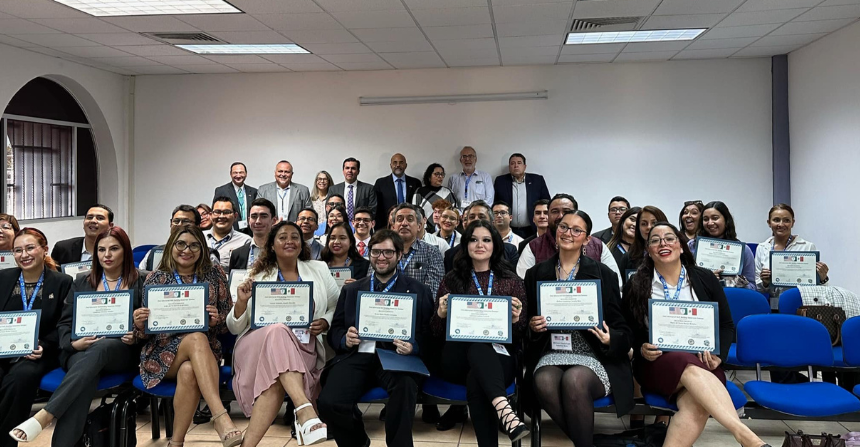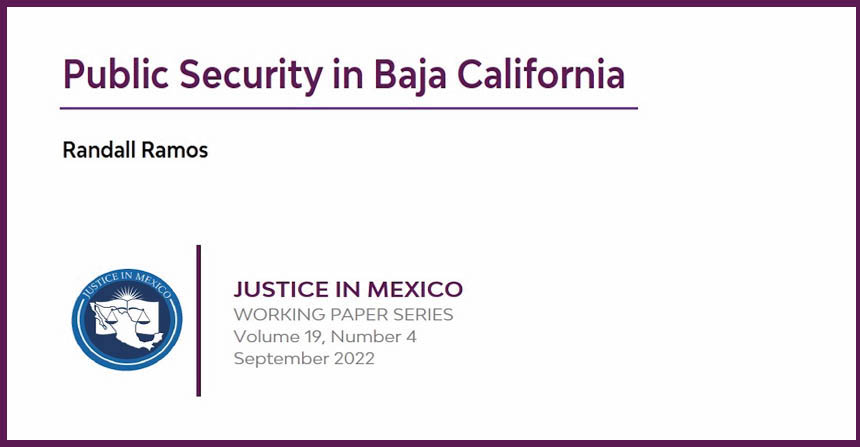04/08/12—The Nayarit Judicial Branch recently graduated the first cohort to complete a specialization in criminal law. The first outgoing class of 36 graduates, 20 of which were public judicial employees, will be followed next year by a class of 105, many of which are public defenders, professional court-appointed experts, and prosecutors (agentes del Ministerio Público).
The judicial branch’s training entity, la Escuela Judicial, will also soon initiate specialization courses in civil law and mediation, and is examining a proposal to launch a full Master’s Degree program (maestría) in criminal law.
Additionally, the school recently began instructing 74 lawyers, most of whom already hold other public positions, in the skills needed to become court clerks. Another 76 are studying to become servers of process, subpoenas, and other judicial orders, the latter of which work directly for the courts in Mexico, and must possess law degrees. While the courses are designed to improve graduates’ qualifications for these positions, program completion does not guarantee advancement in the selection process, according to Doctor Giovanni Azael Figueroa Mejía, the school’s director.
Previous graduating classes have completed training in alternative dispute resolution (ADR) techniques. Maximal use of ADR techniques has reportedly reduced disputes between individuals by up to 40% in states such as Sonora. (Such disputes include offenses which may be considered criminal in the U.S. system, and thus between the defendant and the state, while the Mexican system classifies them as between individuals if and when they are brought under a certain type of complaint known as the querella). ADR use is mandated by the same 2008 constitutional reforms that require the transition to an adversarial criminal justice system by 2016. In Nayarit, ADR has been mandatory for certain minor criminal offenses brought under a querella complaint for some years now, as per Article 3 of the state Code of Criminal Procedure.
In further efforts to promote skills necessary for a successful transition to adversarial criminal justice, the state Judicial Branch also recently announced a state mock trial competition (Concurso Estatal de Juicios Orales) to take place in May. Both law students and practicing attorneys are invited to participate in the event, which is designed to promote a pro- adversarial justice culture among local legal professionals. A separate competition for law students only will also be held in upcoming months.
Also of note in Nayarit’s reform process, the state Judicial Branch recently announced the federal government awarded $4.3 million pesos (roughly $325,000 USD) to finance the transition to adversarial criminal justice. This will be the first transfer of federal money received for this purpose. Nayarit Judicial Branch President Pedro Antonio Enríquez Soto reported that the money will arrive already allocated to specific projects, under the oversight of the Technical Secretariat of the Coordinating Council for the Implementation of the Criminal Justice System (Secretaría Técnica del Consejo de Coordinación para la Implementación del Sistema de Justicia Penal, SETEC).
In preparation for the upcoming transition, President Enríquez Soto reports that the state expects to spend around 12 million pesos this year (around $900,000 USD) on judicial branch and state prosecutor (Ministerio Público) personnel training, combined with strategic efforts to diagnose the current state of Nayarit’s criminal justice institutions. The overall strategic plan for the transition, he explains, will need to encompass development programs for police, the attorney general’s and state prosecutor’s offices, court appointed experts, and public defenders, in addition to the judicial branch itself.
Sources:




